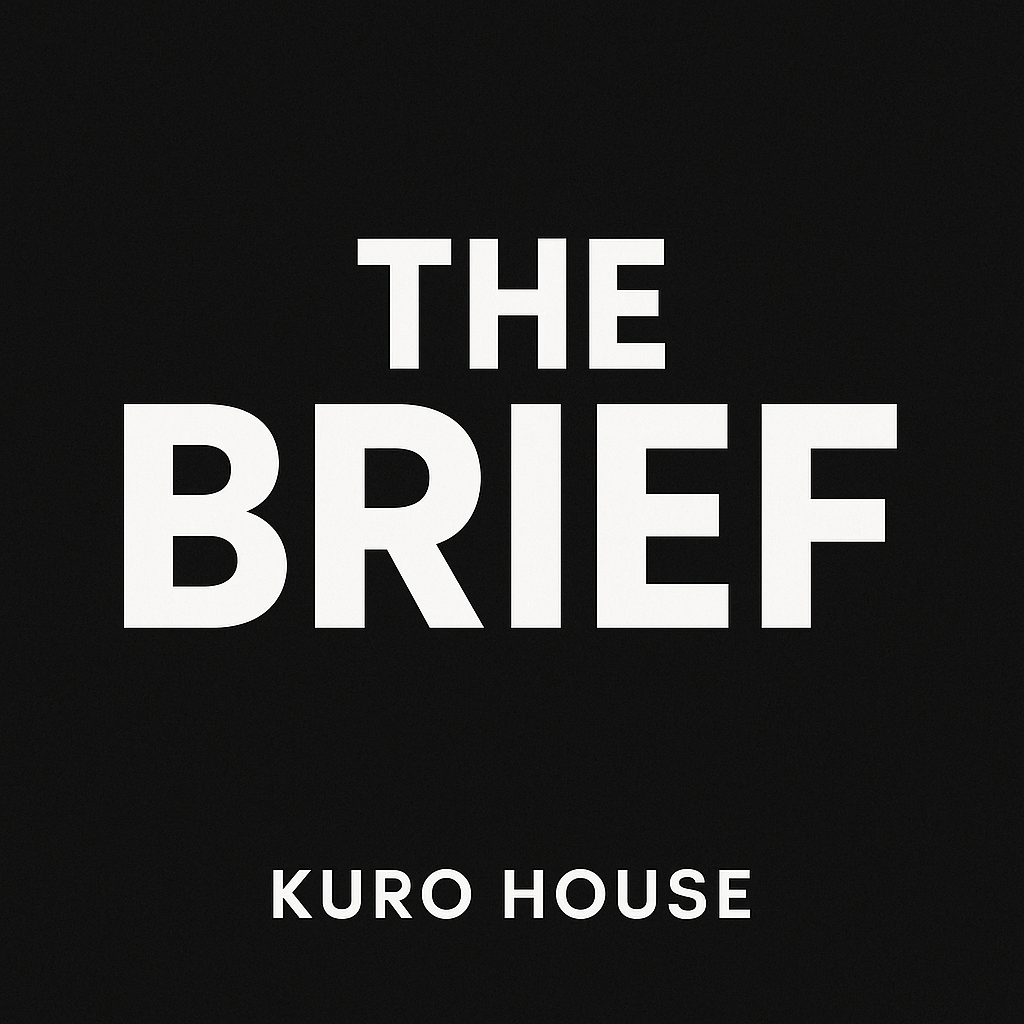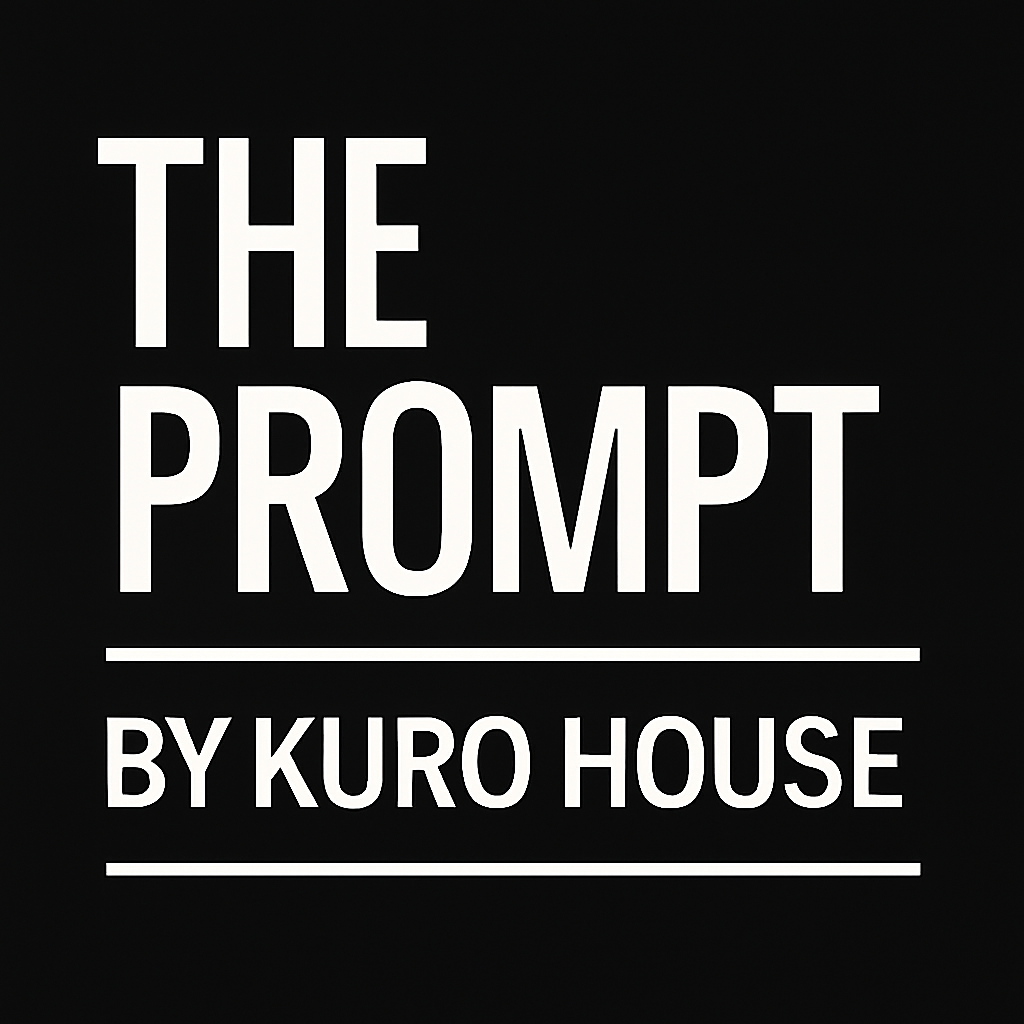Listen To The Show
Transcript
Welcome to The Brief by Kuro House, your daily deep dive into the most vital stories shaping the marketing and media world. Today, we’re unpacking a week that’s seen seismic shifts in social media ownership, retail innovation, executive moves, and the very foundations of the ad economy. Let’s get you up to speed.
First up, the long-running TikTok drama may finally be nearing its finale. According to Adweek, President Trump has signed an executive order that allows TikTok to keep operating in the U.S.—but with a major caveat: significant U.S. ownership. The deal values TikTok’s U.S. operations at $14 billion, with Oracle, Silver Lake, and Abu Dhabi’s MGX wealth fund taking a combined 45% stake. ByteDance, TikTok’s parent company, will retain about 20%, while ByteDance’s existing investors hold the remaining 35%. Trump claims that Chinese President Xi Jinping has given informal approval, but China’s formal sign-off is still pending. Of note, MGX’s involvement raises eyebrows, as its chairman recently funneled $2 billion into a Trump family cryptocurrency venture while benefiting from U.S. political favors, according to The New York Times. This deal is the culmination of a five-year saga that began when Trump first threatened to ban TikTok in 2020, and it’s a compromise meant to appease both Washington and Beijing by restructuring TikTok into a U.S.-controlled entity. Adweek has reached out to TikTok for comment, but for marketers, this could mean a new era of stability—albeit with fresh questions about oversight and influence.
Speaking of TikTok and the broader ad economy, Digiday’s latest Future of Marketing Briefing paints a picture of an industry at a crossroads, with three major stories—Jimmy Kimmel’s suspension, Google’s antitrust woes, and TikTok’s ownership—revealing deep fractures. The briefing notes that advertisers, once vocal cultural stewards, are now silent and cautious, retreating from controversy after the Bud Light backlash in 2024. The result? A climate of “ambient fear” where brand safety trumps purpose, and even buying late-night ad slots is seen as a political act. Ad dollars are fleeing news and journalism, with WARC estimating global ad spend on news has fallen by a third since 2020. Meanwhile, Google’s dominance of the ad supply chain is finally facing a serious challenge as the Department of Justice seeks to dismantle its ad tech monopoly—a move seen as essential for the survival of independent journalism. As for TikTok, concerns are rising that new ownership could lead to increased censorship and a more closed platform. The briefing also highlights the growing power of communications chiefs in boardrooms, who now share decision-making with CMOs to manage reputational risk in an increasingly politicized media landscape. For marketers, the message is clear: the rules are changing, and the stakes have never been higher.
Turning to retail innovation, Pinterest is making a play to become a bigger force in retail media, as reported by Adweek. The platform is rolling out Pinterest Media Network Connect, a new self-service tool that lets advertisers and retail media networks track if Pinterest ads actually drive sales. The tool integrates a retailer’s audience, conversion data, and product catalogs, allowing brands to manage and run Pinterest campaigns using their own retail data. Advertisers can link campaigns directly to ecommerce sites and then track metrics like return on ad spend and clicks. Julie Towns, Pinterest’s VP of product marketing and operations, says the goal is to give brands more control and transparency over their campaigns. For marketers, this could mean more efficient spending and better attribution—two things the industry is hungry for as retail media networks continue to surge.
Meanwhile, Banana Republic is mining its past to spark new brand love. Also from Adweek, the brand has launched Banana Republic Archive, a digital platform where fans can purchase limited-edition vintage pieces from the 1970s, 80s, and 90s. In a clever move, Banana Republic has also acquired Abandoned Republic, a fan-curated archive created by illustrator Robyn Adams. This digital trove features illustrated retro catalogs and writing from luminaries like Nora Ephron and Hunter S. Thompson, alongside original store imagery. Abandoned Republic will remain intact within Archive, serving as a living tribute to the creative spirit that’s defined Banana Republic since its founding by Mel and Patricia Ziegler in 1978. For marketers, this is a masterclass in how to use nostalgia and community to reinvigorate brand affinity and court new audiences.
Finally, there’s a major executive shakeup in the streaming wars. As reported by Adweek, Peter Friedlander, the former head of scripted TV for the U.S. and Canada at Netflix, is joining Amazon MGM Studios as head of global TV. Friedlander, who oversaw massive hits like Wednesday, Bridgerton, Emily in Paris, Monster, Ozark, The Queen’s Gambit, Stranger Things, The Night Agent, 3 Body Problem, and Black Mirror, will now oversee Amazon’s original TV portfolio in the U.S., global tentpole titles, MGM Television, and MGM Alternative. He succeeds Vernon Sanders and brings with him a resume that includes shepherding Netflix’s first generation of original series, plus stints at Tom Hanks’ Playtone and work on films like Road to Perdition and Austin Powers in Goldmember. Amazon’s Mike Hopkins praised Friedlander’s creative chops and leadership, saying he’s “equally ready to get started on Day 1.” For the streaming industry, this is a significant hire that signals Amazon’s intent to double down on original content and global reach.
That wraps up today’s Brief. From seismic shifts in media ownership to the creative power of nostalgia and the evolving roles of marketing leaders, it’s clear that the only constant in our industry is change. Stay curious, keep questioning, and we’ll be here tomorrow to help you make sense of it all. Thanks for listening to The Brief by Kuro House.

